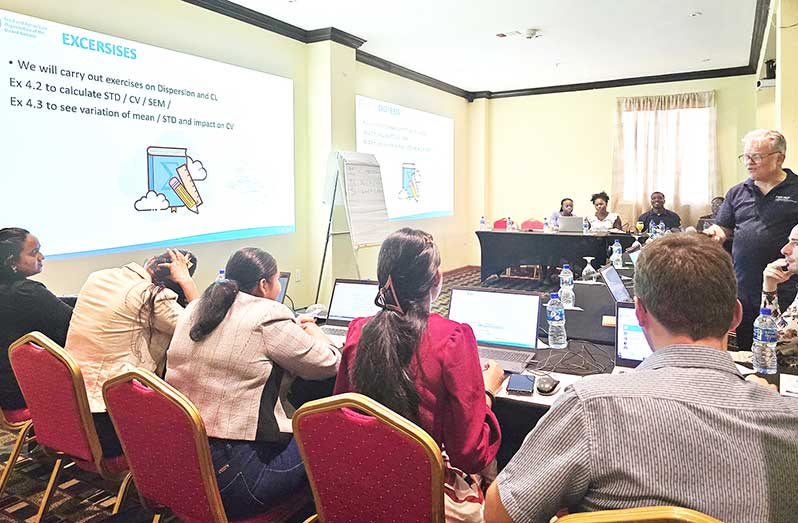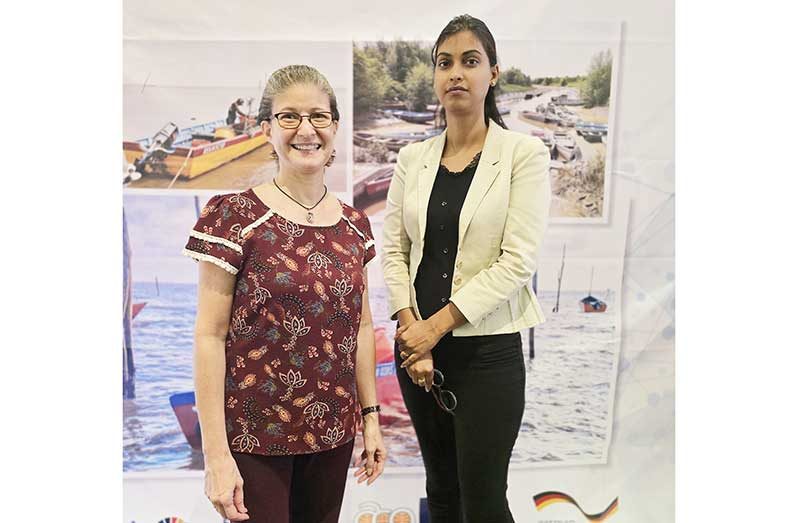FISHERIES professionals from Guyana, Suriname, and Trinidad and Tobago are participating in a regional training workshop on fisheries statistics and data analysis, held from November 11 to 21.
The initiative aims to enhance the capacity of these professionals to gather, analyse, and utilise fisheries data effectively, ensuring sustainable fisheries management and improved decision-making.
Yann Laurent, Head Trainer from the Food and Agriculture Organization of the United Nations (FAO), underscored the importance of the training.

“This training is essential for fisheries officers and extension workers to understand advanced methods used for collecting quality data from the field—particularly from remote or difficult-to-access fishing communities along the coastlines of Guyana, Suriname, and Trinidad and Tobago,” he stated.
Laurent highlighted that the workshop focuses on gathering critical information such as catch volumes and frequency of fishing activities, often from isolated communities.
“By the end of this training, those managing data from landing sites will be able to estimate a country’s official fish population statistics. These estimates will be reliable, timely, and trusted, forming the basis for policy-making, adapting to sector dynamics, supporting other studies, and measuring levels of exploitation,” he added.
Participants are being trained in theoretical concepts, statistical software, and advanced sampling techniques, with a focus on the digitalised CALIPSEO data collection system. This cutting-edge system enables efficient and precise data management, paving the way for reliable fisheries statistics.
Gaushimi Poeran, a participant from Suriname, emphasised the relevance of the workshop to her country’s small-scale fisheries sector.
“The small-scale fisheries sector in Suriname is growing rapidly, and it’s crucial for us to improve our data collection and ensure that it meets international standards. With this training and FAO’s best practices, we now have better tools to deliver our data in a more quantitative way,” she said.
Similarly, Lara Ferreira, a Fisheries Officer from Trinidad and Tobago, appreciated the opportunity to strengthen data management practices.
“This training is helping us enhance our skills in fisheries data collection, storage, and analysis, leading to better-informed decision-making. A representative from Tobago is also here, and we’re working together to integrate data from both islands,” she shared.
From Guyana, Desha Husbands Spellen of the Fisheries Department noted the significant impact of digitised data systems like CALIPSEO. “Previously, data collection and storage took a lot of time and space to process. Since the implementation of CALIPSEO, we’ve been able to consolidate data across divisions. This training, which starts from basic to advanced levels, will improve our ability to produce specific reports and estimates, thereby enhancing our efficiency,” she said.
The workshop is a collaborative effort by the Fisheries Department of Guyana, the FAO, the University of the West Indies (UWI), and the EU-funded FISH4ACP programme. It marks a critical step toward evidence-based fisheries management in the region.
By equipping fisheries professionals with modern tools and techniques, the training supports a sustainable fisheries sector that contributes to food security and improved livelihoods for small-scale fishers. With enhanced skills and digitalised systems, Guyana, Suriname, and Trinidad and Tobago are poised to set new benchmarks in fisheries data collection and analysis, fostering long-term sustainability in the sector.


.jpg)











